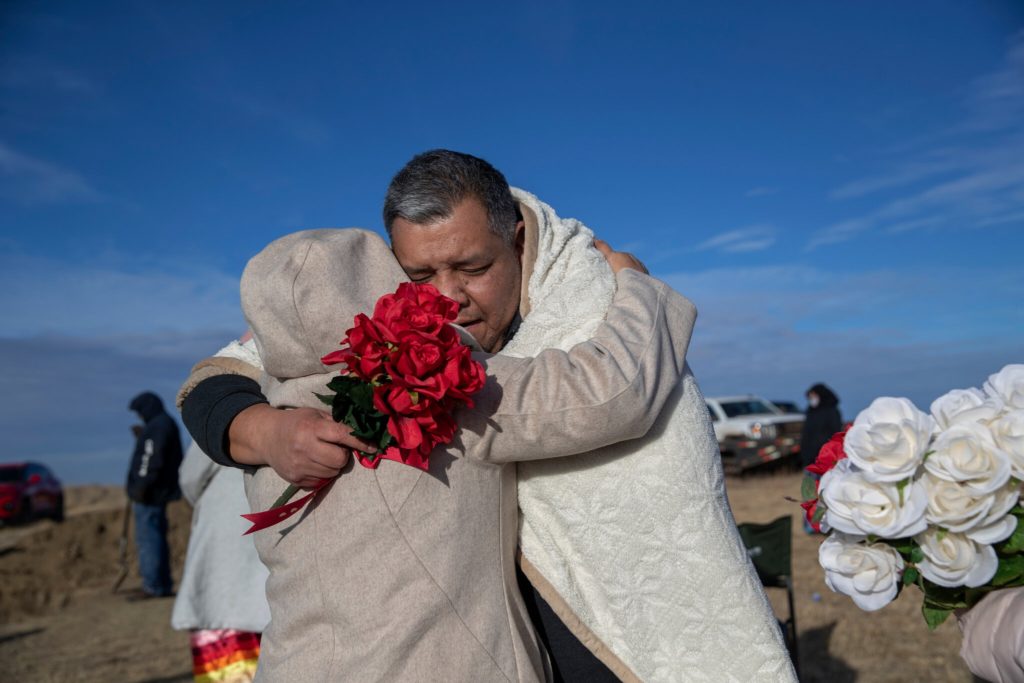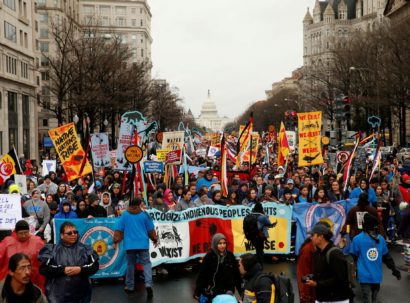Tribal Elders Are Dying From the Pandemic, Causing a Cultural Crisis for American Indians

On January 12, 2021, Jack Healy at The New York Times reported on the devastating toll that the Coronavirus has taken on the Standing Rock Sioux Tribe and other Indigenous nations in the U.S.
The catastrophic loss of elders at Standing Rock will have a profound impact on our youth, as the pandemic continues to sever the younger generations’ relationship to their own culture – the language, wisdom, and Lakota/Dakota traditions that are typically passed down from the elders.
Despite community-driven efforts to stop the spread of the virus at Standing Rock, an underfunded healthcare system and perpetual lack of assistance from the U.S. Government has rendered most of Standing Rock’s preventative measures ineffective.
The number of Native Americans that have died from coronavirus is currently double that of white Americans.
“We’re losing a historical record, encyclopedias. One day soon, there won’t be anybody to pass this knowledge down,” said one interviewee.
You Might Also Like
On January 20, 2021, The New York Times reported on President Biden’s cancellation of the Keystone XL Pipeline permit: a decision that is both long-awaited and significant for Native Americans.
Faith Spotted Eagle, an elder in the Yankton Sioux Tribe of South Dakota, is quoted saying “I’m gratified that our treaty rights have been honored. This is a vindication.”
President Biden’s decision was met with criticism from Canadian officials who claim that cancellation of Keystone XL will severely affect Canada’s economy. The pipeline would have carried crude oil from Canada to Nebraska to refineries on the Gulf of Mexico.


